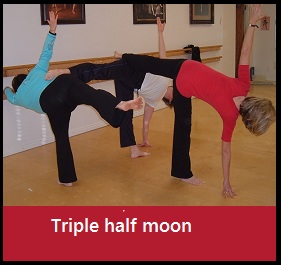All of the yamas and niyamas are meant to be practiced at the same time and this can seem daunting and overwhelming so this is a good time to introduce the observance or niyama called Tapas. It’s another way of saying self-discipline or just showing up every day and giving your best effort to life. Tapas is not burning out because of overdoing or enthusiasm that is out of balance. It is small, consistent burning away of obstacles and resistance.
If good health, happiness and a wonderful life is the desired goal, then obstacles in our way need to be conquered, dissolved, burned away with consistent effort. This is tapas.
BKS Iyengar talks about tapas in this way:
Tapas is derived from the root ‘tap’ meaning to blaze, burn, shine, suffer pain or consume by heat. It therefore means a burning effort under all circumstances to achieve a definite goal in life. It involves purification, self-discipline and austerity—-Tapas is the conscious effort to achieve ultimate union with the Divine and burn up all desires which stand in the way of this goal.
Nischala Joy Devi adds this insight into tapas:
Living life with the zeal and sincerity, the purifying flame is ignited (Tapas), revealing the inner light.
The previous niyama is Santosha or contentment. One might get the idea that the practice of the 8 limbs of yoga would lead to a lazy complacent attitude. Keeping balance ever in mind we add the fiery commitment to life called tapas to remind us to stay involved, and passionate about health, spiritual practices and our daily vocation.
As a daily observance tapas is the self-discipline and commitment to keep doing what we know to be good for the body; a daily yoga, breathing or meditation practice, proper sleep, fresh foods, or connecting with loved ones.
For my own observance of tapas for this month I am going to explore proper sleep. For at least a week, I will just observe details about sleeping and how I feel, then I will know what to change to get a better quality of sleep.




